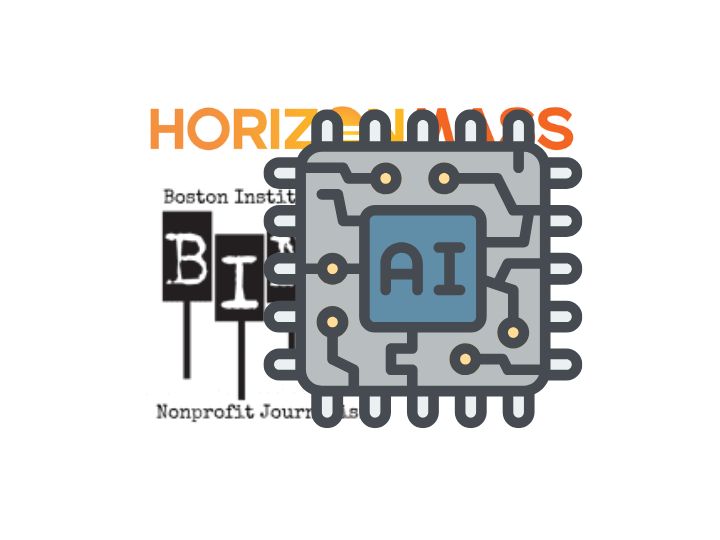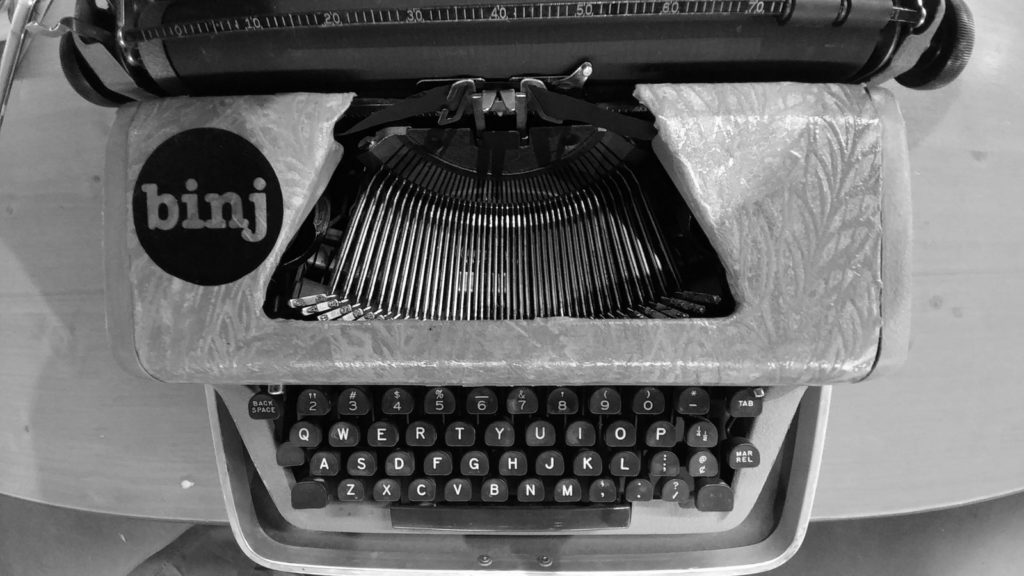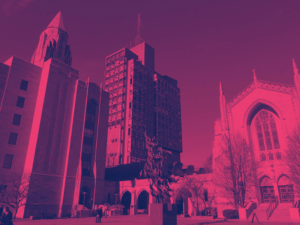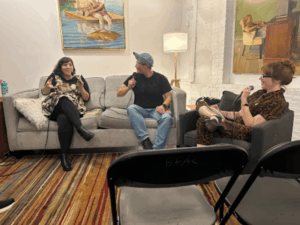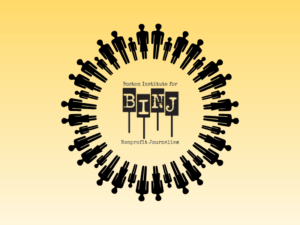But our fans can help us survive by, yes, actually reading our articles (and sharing them)
I had been meaning to write something about how the purposeful upending of the established digital information order in recent years has become one of the largest motive factors in the terminal collapse of the American news industry—making the survival of smaller independent news outlets like HorizonMass and its parent organization Boston Institute for Nonprofit Journalism less likely with each passing year. But my partner Chris Faraone threw the first punch along those lines in his latest column this week; so I decided to join him and throw a second one here.
In the decade that Chris, myself, and our other partner John Loftus have run BINJ together, we have seen it become harder and harder for news organizations like ours to build and sustain audiences. Not because the need for reporting in the public interest has diminished. It has clearly increased. And not because journalists like ourselves and the many freelancers and interns we work with have forgotten how to report the news. We most certainly have not. Rather, because we are being systematically blocked from reaching the people who were once our audiences. We are being made invisible. And it is the tech giants that dominate today’s information landscape and the billionaires that own them that are to blame for that worst of the many crises we face.
The Social Media Trap
Like myriad other news publishers around the country, as we built BINJ’s initial audience starting from its launch in June 2015 and HorizonMass’ since August 2023, we encouraged those readers to find us and follow us on what has shaken out to be seven social media platforms, six of them run by major corporations (plus the democratically-run Mastodon). The tacit understanding between publishers like us and Facebook, X/Twitter, Instagram, Threads, BlueSky, LinkedIn, and all the others that we don’t currently use was that we would provide people with access to quality content that made them want to stay on social media and share it with friends and colleagues and that the social media companies would help us get more “eyeballs” on the pages of our websites.
And Chris, John, and I are all old enough to remember what it was like when that deal really worked for news outlets large and small. A period when, especially on Facebook, we could reach a significant chunk of our audience every time we posted.
But over time the social media corporations that news outlets like ours helped turn into vast conglomerates made it clear that they were changing the deal.
In 2015 that process was already well underway, though it was still possible to pull people into our digital orbit and reach at least some reasonable percentage of them on a regular basis. However, it was already obvious that social media companies not only wanted to monetize everything their users did on their platforms for themselves alone, they also wanted to make news outlets pay to reach our own audiences there.
So as years went by, smaller news organizations like ours that couldn’t afford to do that have seen our social media audiences forget about us … since most of them never hear from us anymore. Because the social media companies refuse to show them our posts for what they call “free,” even though they are making bank from everything we share there and every moment we and our audiences spend there because of that content.
After much struggle, BINJ and then HorizonMass upon its founding almost exactly two years ago built combined social media audiences that range from a few thousand on Threads and BlueSky (our LinkedIn and Mastodon audiences being too tiny to mention) to several thousand on Instagram to nearly 16,000 on Facebook to over 41,000 followers on Twitter. But look closely at the numbers of likes and shares we get on even the largest of those accounts and it’s easy to see that most get a mere handful of “engagements” and some get none at all week to week.
From SEO Shenanigans to AI Obliteration
At the same time, since even before 2002 when Google became the dominant search engine, it has been standard practice for news outlets like BINJ to spend time on the back end of our websites doing the tedious work of “search engine optimization”—in hopes of making our news content as attractive as we could to the little Google (and other search engine) “bots” that get to decide which of our article links appeared high enough on the first page of search results on any given term relating to our content to grow our audience.
That worked for us to a degree until right around the time we started HorizonMass. Although here too, we really needed to pay search companies money we didn’t have to ensure better performance. Then came the furious and unbidden rise of so-called “AI”—the very inaccurate name for a group of related new technologies that do some useful things, sure, but mainly seem aimed at tearing down the Internet as we knew it to temporarily increase profits for tech giants from established companies like Google-parent Alphabet to new entrants like OpenAI.
Among the immediate casualties have been news sites like HorizonMass and BINJ. Naturally, my partners and I have kept up on the new technologies and even used them to quickly improve Google search results for our sites over the last year. Yet by this June we noticed a disturbing truth: the number of people seeing links to our work at the top of Google results for search terms like “Mass prison reform” continues to grow steadily month by month, but the number of people clicking on those links, coming to the HorizonMass and BINJ websites, and reading our work has barely grown at all.
Which was our introduction to “the Great Decoupling.” That is, the placement of “AI summaries” on top of search results by Google and every other search engine, web browser, and AI chat product that answer people’s questions (however badly) before they scroll down to see links to news sites like ours. Which has resulted in a serious disconnect between the number of people that see links to news articles (and links of any kind) in searches and the number that actually click through to read those articles.
According to a new study by the Pew Charitable Trust, less than 1% of search users that encounter an AI summary bother to click through to the websites that provided the information for the summaries. And I hasten to point out that not all AI summaries provide links to the source websites from which they scrape information. The study also shows that Google users, who remain the bulk of all search users, “are more likely to end their browsing session entirely after visiting a search page with an AI summary than on pages without a summary.”
All of which translates to doom for smaller news outlets like ours. Because the smaller the audience we can build, the fewer subscribers to the newsletters we all rely on to both show them our articles and raise money—whether the outlets are nonprofits like HorizonMass and BINJ or for profits. For those publications with ads, this AI catastrophe means fewer views of those ads resulting in lower ad revenue as well.
Anyone with these basic facts can see where this is all going … to the end of the Internet as a place where you can easily find professionally-produced news articles covering important issues of the day. But can BINJ and other small news outlets do anything about it?
The Way Forward (Read and Share Our Stuff!)
If there is any way to turn this situation to the advantage of small news outlets like HorizonMass and BINJ, it can only happen with the help of our stalwart audience members: that is, you, our readers.
It may be the case that tech giants realize they’re ultimately hurting themselves by hurting news organizations large and small and take steps to help us grow and maintain our audiences again.
But journalists like me aren’t holding our breath for that eventuality, given how much those giants have crushed us under foot to date.
Which puts it on publishers like Chris, John, and me to constantly strive to improve our content—a positive thing—and on you, our audience members, to do what you can to help us grow.
So here are five things you can do to help HorizonMass, BINJ, and any other small news outlets keep on keeping on:
- Subscribe to our newsletters
When you visit the HorizonMass and BINJ websites, you’ll see popup windows encouraging you to subscribe to our newsletters (we’re planning to offer you a choice of more than one soon, FYI). Please do that and get our regular updates by email.
- Don’t block our emails
Email services like Gmail make it ever easier for folks like you to automatically filter out newsletters like ours so that you basically never see them again. Please don’t do that. Make certain that HorizonMass and BINJ emails get through to your general inbox; so you see them as they arrive.
- Read our emails
Virtually every email we send out, even most appeals during our fundraising campaigns, includes a list of our newest articles. Please open them when you receive them and check out the content we have on offer.
- Don’t just read headlines, click through to our articles
This one is really critical: Too many people understandably feel so bombarded with (mostly useless) digital information every day that they’ve taken to skimming headlines on newsletters from outlets like HorizonMass and BINJ, but not reading the articles themselves. But the best and easiest way to help us while benefitting from the new useful information we work hard to provide is to click through from our newsletters (and via social media and search, on the rare occasions you are allowed to see our links) and read our articles.
- Share our articles with your friends and family
Social media corporations are refusing to show our article posts to even those of you who follow us on various platforms and AI summaries are stopping new people from finding them. That means if you like our articles and want to support the work we’re doing, then share them with your personal network. Directly via email, if you have a moment, though sending our links in chats and group chats is even better.
Beyond enlisting the support of our existing audience, we do have new tricks up our sleeves and we’ll be telling you about some of them by fall. But for now, the best way to help us beyond tossing us a donation at least once every year is to memorize that list above and read our stuff!
Any readers who have the serious professional skills needed to help BINJ claw our audience back from the tech lords and are willing to volunteer some of your valuable time toward that goal are welcome to drop us an email at info [at] binj.news.
Apparent Horizon—an award-winning political column—is syndicated by the MassWire news service of the Boston Institute for Nonprofit Journalism.

